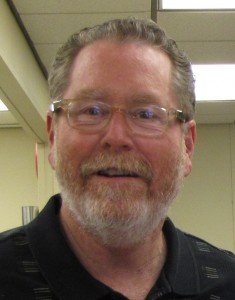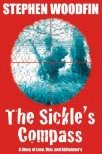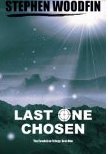Today I am most fortunate to have Stephen Woodfin on my blog site. He is a husband and father, a lawyer and writer, a benefactor and a caring person that I am proud to know. But, I’ll let him tell his story.
Tell us how you got started writing.
 Stephen: I had always wanted to write and fiddled with it. I began attending workshops and meetings, such as NETWO, and decided to get serious about it. When I finished my first novel about three years ago, I obtained an agent, and she submitted it to a couple of NY houses. Then, I finished the second book, and she submitted it. Then the third book followed suit. I had just finished THE SICKLE’S COMPASS when we formed Gallivant Press, so it became the first book published although it was the fourth one I wrote.
Stephen: I had always wanted to write and fiddled with it. I began attending workshops and meetings, such as NETWO, and decided to get serious about it. When I finished my first novel about three years ago, I obtained an agent, and she submitted it to a couple of NY houses. Then, I finished the second book, and she submitted it. Then the third book followed suit. I had just finished THE SICKLE’S COMPASS when we formed Gallivant Press, so it became the first book published although it was the fourth one I wrote.
JRC: Let’s start with your first published book. The Sickle’s Compass deals with Alzheimer’s, and deals with it very well. Did you have any experience with friends or relatives that prompted such a topic?
Stephen: My mother died after a ten-year struggle with Alzheimer’s. My wif e and I have been advocates for Alzheimer’s patients for many years. Also, my father fought in the Battle of the Bulge as did the protagonist in THE SICKLE’S COMPASS. I believe the intersection of WWII and Alzheimer’s is where many of the members of the Greatest Generation fight their last heroic struggle. My book was something of a tribute to them.
e and I have been advocates for Alzheimer’s patients for many years. Also, my father fought in the Battle of the Bulge as did the protagonist in THE SICKLE’S COMPASS. I believe the intersection of WWII and Alzheimer’s is where many of the members of the Greatest Generation fight their last heroic struggle. My book was something of a tribute to them.
JRC: Your second book published, Last One Chosen, is actually the first book of The Revelation Trilogy. Tell us a little about it.
Stephen: In LAST ONE CHOSEN, the government attempts to silence a brilliant scientist when he refuses to assist in a plan to deploy the ultimate weapon of mass destruction. It is a fast-paced legal thriller.
JRC: Sounds exciting. I’m going to download it today. When do we get to see book two of the trilogy?
Stephen: Book two, NEXT BEST HOPE, is finished and in the final stages of production. It should be out in the next month or so.
JRC: Last November, you released Money Is Thicker than Blood: Murder in the SEC. Let’s see, there are now thirteen teams in the SEC. Are we going to see thirteen books in this series? Do I sense that football might be in the story?
Stephen: It may have something to do with football. The book opens with the murder of a star player at the Iron Bowl, which is the annual battle between Auburn and Alabama. The rest of the book unravels the murder. Along the way, some strong women even the score for a wrong committed long ago. I am working on book two in that series now, and will probably keep writing those for a while.
JRC: If I’m not mistaken, Money Is Thicker than Blood rose very quickly on the Amazon charts. Can you tell us a little about how you promoted it?
Stephen: Our promotion efforts haven’t been so much about particular books as they have been about building a platform. The essential elements in the platform are a dynamic website, a regular blog, and use of social media, Twitter in particular. We built a first-rate website, we blog virtually every day and we have developed a following on Twitter. That’s a lot of work. As we move forward, we are exploring new types of promotions, and we will utilize whatever works.
JRC: Okay. After I download the Last One Chosen, I’ll tweet. I promise. But back to the writing part of the business. Do you outline, or make character bios?
Stephen: At the last NETWO conference, one of the speakers talked about this. She said that there are three types of writers: 1. Those who outline everything before they write a word, 2. Those who write the first and last chapters, and then fill in the rest and 3. Those who just write without a plan in mind. “Whatever you do, don’t be in that third group,” she said. I am in the third group. I have a general idea of what the book is about, and I sit down and start. One scene leads to the next. I heard that Hemingway told someone that if he knew how a story was going to end, so would his readers. For me, the story is a matter of discovery. That’s where the fun is in writing. When I sit down to write, I know something unanticipated will happen.
JRC: Wow. I can’t do that. But then, I’m not a lawyer either. Who is your first reader, and who is your last reader (before the editor/publisher)?
Stephen: Initially, Jory Sherman served as my writing coach. Charlotte, his wife, would format the file for me for submission to my agent. The agent would give it a read through and call me with any suggested changes, and I would make them.
Since I began writing THE SICKLE’S COMPASS that process has changed. Now, I’m in a writing group that consists of four people. The members of that group hear bits and pieces of my books as I go along, and they give me valuable input. When I finish the manuscript, my friend and mentor, Caleb Pirtle, and his wife, Linda, take over the editorial process. I consider the changes they suggest, and tweak the manuscript accordingly. This process always strengthens the book. That give and take usually requires several revisions, and is the most tedious part of the process for me. By the time I have read the book five or six times, I would just as soon not see it again.
JRC: I understand that. I think I read Murder a Cappella seven times during the publication process. You’ve been a successful lawyer for over 25 years. Now, you’re a successful writer. If writing paid as well as a law practice, would you take up writing full-time?
Stephen: I still practice law, but my heart is in the writing and publishing business now. Most people don’t think about attorneys as small business people, but that is what we are. So I have been a businessman for many years. I approach writing and publishing just like I did when I first hung out my shingle. I work hard at it, study it, try to execute a plan. It is a lot of work, but also something I greatly enjoy.
JRC: And that sounds like a plan. And as George Peppard said on The A Team, “I love it when a plan comes together.” One last question. What’s the best advice you ever got on writing? And what advice would you give?
Stephen: I think Jory Sherman gave me the best advice when he told me that all I needed to write a book was already within me. In a sense those simple words gave me permission to write, and I have never looked back.
On the other side, I think many people who give writers advice really do little more than set up roadblocks. They are more concerned about telling a writer what not to do than they are in inspiring the author to move forward. Don’t start with the weather, don’t start with a quote. Use more description, use less description. The writer gets to the point where he is afraid to put anything on paper, for fear of violating a writing rule.
My advice is simple. Keep writing until you finish the book. Don’t re-write, don’t look back, just keep going. When you type “The End,” it will change your life.
JRC: And what a way to end. Stephen will give a copy of his book Last One Chosen to one person, chosen at random, from those who leave a comment. (Since I’m going to download it today, I guess I won’t enter. That gives you a better chance.) Leave him a comment, and I’ll drop your name in the hat.

Enjoyed this interview very much. Stephen is such a nice guy. I enjoyed learning about his process.
~Ann
Yea! I found the comment button this visit. Enjoyed the interview with
Stephen. Appreciate his openness and want to thank him again for the long informative conversation we had last weekend. I look forward to my association with Venture Galleries.
Loved this interview. The Sickle’s Compass sounds brilliant. Actually all your books sound great.
Two books I’m working on involve law(s) to some degree. I imagine that your career in law is invaluable to your writing career.
Thanks for sharing.
Please enter me in the contest also.
Thanks.
Jackie
joyfuljel(at))gmail(dot))com
Jim, I loved this post…yep I’m a sucker for mystery with historical facts, so I will be looking forward to reading Stephan’s Sickle’s Compass.
Enjoyed this interview. I might have to pick up The Sickle’s Compass. I also have a protagonist who was in the Battle of the Bulge, so I have to see what some of his fellow soldiers were up to.
William Doonan
http://www.williamdoonan.com
Jim,
I enjoyed your interview with Stephen. I especially liked his comment “I think many people who give writers advice really do little more than set up roadblocks.” I agree.
I belong to a critique group and their input has been invaluable to me but I’ve heard and read so much advice (some from people who are allegedly experts) on writing; it boggles the mind! I think we need to remember to listen and read everything we can but never to take advice that doesn’t feel right to us. Always trust your gut!